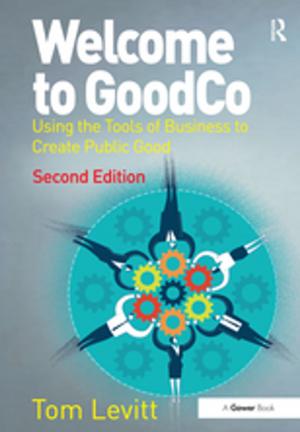Reciprocity in the third millennium
Money or the structure of socio-economic evolution - Book II : Geopolitics and New Social Rules
Business & Finance, Economics, Economic Development, Economic History, Business Reference| Author: | Derek Queisser de Stockalper | ISBN: | 9782832109281 |
| Publisher: | Éditions Slatkine | Publication: | March 11, 2019 |
| Imprint: | Éditions Slatkine | Language: | English |
| Author: | Derek Queisser de Stockalper |
| ISBN: | 9782832109281 |
| Publisher: | Éditions Slatkine |
| Publication: | March 11, 2019 |
| Imprint: | Éditions Slatkine |
| Language: | English |
A fundamental approach to the structure of the economic evolution, the impact on geopolitics and the role of new social rules.
What does a house, digital data and social connections have in common?
They all are asset classes of a physical-digital economic space.
What does a village marketplace, YouTube and a blockchain have in common?
They all are resource allocation mechanisms.
What does trust and geography have in common?
Both will be fundamentally transformed by the digital revolution.
Book II builds on the twin concepts of “reciprocity” and “social contracts” discussed in Book I and introduces a new game analogy to better understand the impact of digitalization on our incumbent systems. For example, who will be the new “players” of this post-modern socio-economic game? How will new reciprocity mechanisms impact geopolitics and social rules? Can a new game generate sustainable systemic behaviors over the medium-term?
Book II identifies a profound paradigm shift that will enable the emergence of a fourth family of reciprocity mechanism. This will result in a novel and complementary resource allocation process that should gradually help us address some of our major social and environmental challenges at the start of the third millennium.
In this second volume, Derek Queisser de Stockalper helps us understand the rapid evolution of our economic systems and its impact on our modern political and social structures.
EXTRAIT
Societies have evolved from simple hunter-gatherer community structures tens of millennia ago to gradually more complex structured Societies millennia ago. With a growing number of individuals competing for limited resources, it became imperative for communities sharing common values and culture to organise themselves more formally to address their social and economic agents’ basic physiological needs and craving for physical security. As we have seen in Chapter IV of Book I, various resource allocation processes – based either on gift, balanced or negative reciprocity – developed over the ages to address the resource allocation needs of communities. As a result, or sometimes in parallel, various political structures and Social Contracts emerged to define and organise the living rules of these nascent Societies. Interestingly, the German Sociologist Georg Simmel notes that the simple formalization of a common reciprocal mechanism, such as a common negative reciprocity currency, is enough to justify a shift from ad-hoc or anarchy-like community dynamics to formalized rules-based Society dynamics.10 With time, emerging political and economic rules were formalized within explicit or implicit Social Contracts that eventually led to modern political structures such as the Nation-State.
ABOUT THE AUTHOR
Derek Queisser de Stockalper is the founder of Queisser & Cie / Qanalytics, a Swiss-based strategic and investment advisory boutique addressing the investment needs of sophisticated capital owners in a low yield environment. He graduated from St Andrews University (Scotland) with an MA in Logic & Metaphysics and International Relations and received an MBA in Economics and Finance from Columbia Business School (NYC). He has collaborated over the past 25 years with various organizations such as J. Henry Schroder & Co, Credit Suisse Financial Products, the Lloyds Banking Group, Firmenich, P&G, DNDi, ESA, IUCN, the UN, the World Bank, as well as with major foundations and family offices in the fields of impact finance, sustainability, conservancy, health infrastructures, education and youth.
In parallel to his professional activities, he is developing novel FinTech solutions to facilitate the emergence of a more balanced and inclusive financial system.
Derek Queisser de Stockalper lives in Geneva, is married and has two sons.
A fundamental approach to the structure of the economic evolution, the impact on geopolitics and the role of new social rules.
What does a house, digital data and social connections have in common?
They all are asset classes of a physical-digital economic space.
What does a village marketplace, YouTube and a blockchain have in common?
They all are resource allocation mechanisms.
What does trust and geography have in common?
Both will be fundamentally transformed by the digital revolution.
Book II builds on the twin concepts of “reciprocity” and “social contracts” discussed in Book I and introduces a new game analogy to better understand the impact of digitalization on our incumbent systems. For example, who will be the new “players” of this post-modern socio-economic game? How will new reciprocity mechanisms impact geopolitics and social rules? Can a new game generate sustainable systemic behaviors over the medium-term?
Book II identifies a profound paradigm shift that will enable the emergence of a fourth family of reciprocity mechanism. This will result in a novel and complementary resource allocation process that should gradually help us address some of our major social and environmental challenges at the start of the third millennium.
In this second volume, Derek Queisser de Stockalper helps us understand the rapid evolution of our economic systems and its impact on our modern political and social structures.
EXTRAIT
Societies have evolved from simple hunter-gatherer community structures tens of millennia ago to gradually more complex structured Societies millennia ago. With a growing number of individuals competing for limited resources, it became imperative for communities sharing common values and culture to organise themselves more formally to address their social and economic agents’ basic physiological needs and craving for physical security. As we have seen in Chapter IV of Book I, various resource allocation processes – based either on gift, balanced or negative reciprocity – developed over the ages to address the resource allocation needs of communities. As a result, or sometimes in parallel, various political structures and Social Contracts emerged to define and organise the living rules of these nascent Societies. Interestingly, the German Sociologist Georg Simmel notes that the simple formalization of a common reciprocal mechanism, such as a common negative reciprocity currency, is enough to justify a shift from ad-hoc or anarchy-like community dynamics to formalized rules-based Society dynamics.10 With time, emerging political and economic rules were formalized within explicit or implicit Social Contracts that eventually led to modern political structures such as the Nation-State.
ABOUT THE AUTHOR
Derek Queisser de Stockalper is the founder of Queisser & Cie / Qanalytics, a Swiss-based strategic and investment advisory boutique addressing the investment needs of sophisticated capital owners in a low yield environment. He graduated from St Andrews University (Scotland) with an MA in Logic & Metaphysics and International Relations and received an MBA in Economics and Finance from Columbia Business School (NYC). He has collaborated over the past 25 years with various organizations such as J. Henry Schroder & Co, Credit Suisse Financial Products, the Lloyds Banking Group, Firmenich, P&G, DNDi, ESA, IUCN, the UN, the World Bank, as well as with major foundations and family offices in the fields of impact finance, sustainability, conservancy, health infrastructures, education and youth.
In parallel to his professional activities, he is developing novel FinTech solutions to facilitate the emergence of a more balanced and inclusive financial system.
Derek Queisser de Stockalper lives in Geneva, is married and has two sons.















